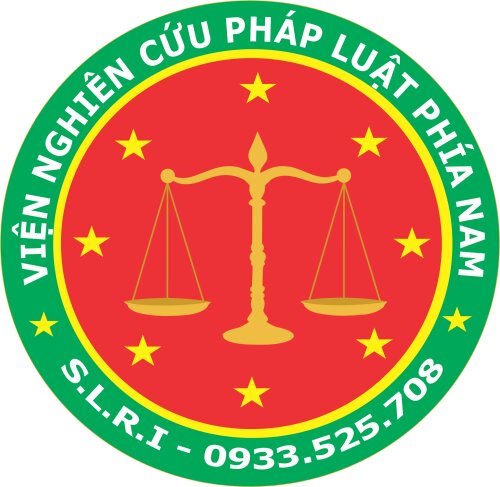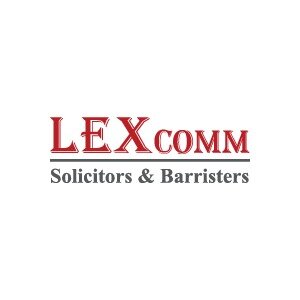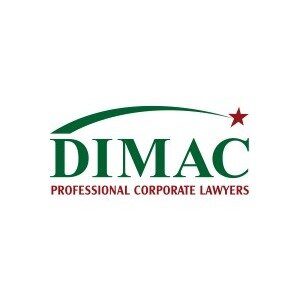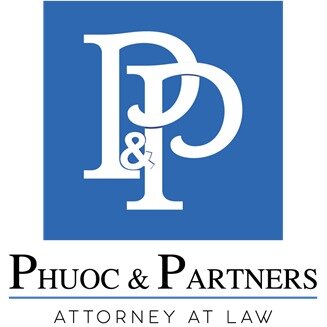Best Conveyancing Lawyers in Vietnam
Share your needs with us, get contacted by law firms.
Free. Takes 2 min.
Free Guide to Hiring a Real Estate Lawyer
Or refine your search by selecting a city:
List of the best lawyers in Vietnam

About Conveyancing Law in Vietnam
Conveyancing in Vietnam refers to the legal process of transferring ownership of real estate or property from one party to another. This process typically involves a range of activities, such as preparing sales contracts, checking property titles, handling transfers at government offices, and ensuring compliance with local regulations. Both local and foreign individuals or entities buying, selling, or inheriting property in Vietnam must follow specific procedures set out by Vietnamese law. Conveyancing primarily aims to provide security and clarity for all parties involved in property transactions.
Why You May Need a Lawyer
Conveyancing in Vietnam can be complex, especially for foreigners or those unfamiliar with local regulations. Common scenarios where legal assistance is recommended include:
- Purchasing or selling residential or commercial property
- Ensuring the legality and validity of ownership documents
- Transferring property between family members or as part of an inheritance
- Clarifying rights and restrictions for foreigners purchasing property
- Handling disputes over property boundaries, encumbrances, or ownership rights
- Negotiating and drafting sales agreements or leases
- Registering property ownership with local authorities
- Addressing issues involving joint ownership or co-investment deals
Lawyers with experience in Vietnamese conveyancing law can help ensure smooth property transactions by identifying potential legal risks and making sure all documents and procedures are properly handled.
Local Laws Overview
Vietnamese conveyancing law is governed primarily by the Civil Code, the Land Law, the Housing Law, and supporting governmental decrees. Key aspects include:
- All land in Vietnam belongs to the people and is managed by the State, which issues land use rights to individuals and organizations.
- Ownership transfers commonly involve the sale of land use rights, rather than the land itself.
- Sales contracts must be notarized or authenticated to be legally valid.
- Parties must pay related taxes and fees, including personal income tax, registration fees, and possible value-added tax.
- Foreigners are generally permitted to own specific types of property under certain conditions, usually limited to apartments and some types of houses, and for a maximum of 50 years (with potential renewal).
- All conveyancing transactions require formal registration with local authorities to complete the transfer of land use rights or property ownership.
- Due diligence is critical: checking for encumbrances, existing mortgages, or disputes before proceeding with any transaction.
Frequently Asked Questions
What is involved in the conveyancing process in Vietnam?
The process includes property due diligence, drafting and notarizing a sales contract, paying taxes and fees, and registering the ownership transfer with government authorities.
Can foreigners buy property in Vietnam?
Yes, with certain restrictions. Foreigners can generally buy apartments and some types of houses for up to 50 years, with possible extensions, but not land outright.
How long does the conveyancing process take?
The process usually takes a few weeks to complete once all documents are ready, but it can take longer if complications arise, such as missing paperwork or legal disputes.
Are legal services required for a property transaction?
While it is not legally mandatory to hire a lawyer, professional legal assistance is highly recommended to avoid errors or legal risks during the transaction.
What taxes and fees must be paid?
Common fees include personal income tax, the registration fee, and in some cases, value-added tax. The amount depends on the transaction value and property type.
How do I verify the legitimacy of property ownership?
You should check the land use rights certificate, confirm the property's status with local authorities, and ensure there are no mortgages or legal disputes over the property.
What documents are needed for conveyancing?
You generally need the land use rights (or house ownership) certificate, identification documents of both parties, notarized or authenticated sales contract, and certificates showing taxes and fees have been paid.
What risks are involved in property transactions?
Risks include disputed ownership, fraudulent documents, properties with outstanding debts or encumbrances, and changes to government planning or zoning.
Can I buy property through a company I set up in Vietnam?
Yes, foreign investors can own property through a Vietnamese entity, subject to business and investment laws, but additional regulatory requirements apply.
What happens if there is a dispute during conveyancing?
Disputes can be resolved through negotiation, mediation, or litigation. Legal support is especially important in resolving these matters to protect your rights.
Additional Resources
If you need more information or official guidance, consider contacting these resources:
- Vietnam Ministry of Natural Resources and Environment
- Local Departments of Natural Resources and Environment where the property is located
- Vietnam Land Registration Offices
- Vietnam Bar Federation for legal referrals
- Vietnam Chamber of Commerce and Industry (VCCI) for investors
- Local notary offices authorized for real estate contracts
Next Steps
If you need legal assistance with conveyancing in Vietnam, consider the following:
- List your specific legal needs, such as buying, selling, or resolving a property dispute.
- Gather all related documents, including identification, property certificates, and previous contracts.
- Consult with a qualified Vietnamese lawyer who specializes in property or real estate law for an initial assessment.
- Request a cost estimate for the legal services and ensure transparency about fees.
- Follow your legal advisor's instructions for due diligence, document preparation, and representation at notary or government offices.
- Keep records of all communications, contracts, and payments during the process.
- Carefully review any documents before signing and clarify any terms you do not understand with your lawyer.
Taking these steps will help safeguard your interests and ensure a smoother conveyancing process in Vietnam.
Lawzana helps you find the best lawyers and law firms in Vietnam through a curated and pre-screened list of qualified legal professionals. Our platform offers rankings and detailed profiles of attorneys and law firms, allowing you to compare based on practice areas, including Conveyancing, experience, and client feedback.
Each profile includes a description of the firm's areas of practice, client reviews, team members and partners, year of establishment, spoken languages, office locations, contact information, social media presence, and any published articles or resources. Most firms on our platform speak English and are experienced in both local and international legal matters.
Get a quote from top-rated law firms in Vietnam — quickly, securely, and without unnecessary hassle.
Disclaimer:
The information provided on this page is for general informational purposes only and does not constitute legal advice. While we strive to ensure the accuracy and relevance of the content, legal information may change over time, and interpretations of the law can vary. You should always consult with a qualified legal professional for advice specific to your situation.
We disclaim all liability for actions taken or not taken based on the content of this page. If you believe any information is incorrect or outdated, please contact us, and we will review and update it where appropriate.
Browse conveyancing law firms by city in Vietnam
Refine your search by selecting a city.
















